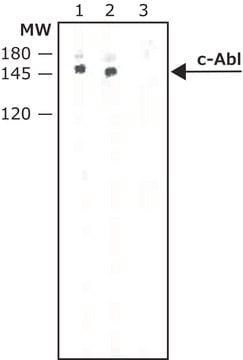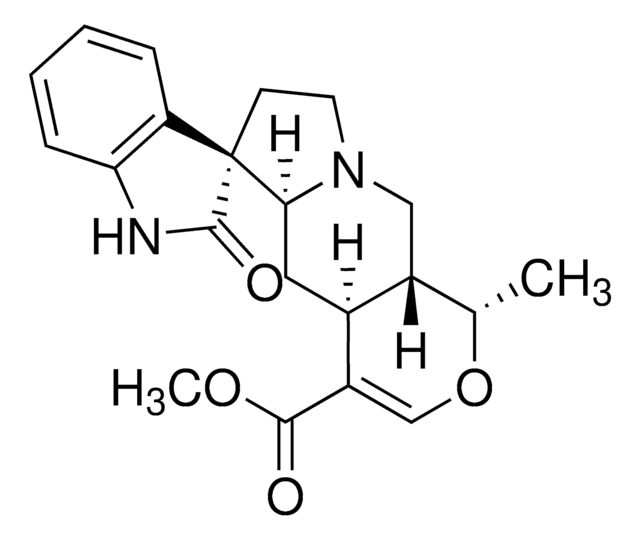487R-9
SMAD4 (MRQ-72) Rabbit Monoclonal Antibody
Synonym(e):
Mothers Against Decapentaplegic Homolog 4 Rabbit Monoclonal Antibody
About This Item
Empfohlene Produkte
Biologische Quelle
rabbit
Qualitätsniveau
Antikörper-Produkttyp
primary antibodies
Klon
MRQ-72, monoclonal
Beschreibung
For In Vitro Diagnostic Use in Select Regions
Verpackung
vial of 0.1 mL concentrate (487R-94)
vial of 0.1 mL concentrate (487R-94-RUO) Research Use Only
vial of 0.5 mL concentrate (487R-(95)
vial of 1.0 mL (concentrate (487R-96))
vial of 1.0 mL concentrate (487R-96-RUO) Research Use Only
vial of 1.0 mL pre-dilute (487R-97-RUO) Research Use Only
vial of 1.0 mL pre-dilute ready-to-use (487R-97)
vial of 7.0 mL pre-dilute ready-to-use (487R-98)
vial of 7.0 mL pre-dilute ready-to-use (487R-98-RUO) Research Use Only
Hersteller/Markenname
Cell Marque®
Isotyp
IgG
Kontrolle
pancreas
Visualisierung
cytoplasmic, nuclear
Allgemeine Beschreibung
Qualität
RUO - MQ100
Physikalische Form
Angaben zur Herstellung
Note: This requires a keycode which can be found on your packaging or product label.
Sonstige Hinweise
Rechtliche Hinweise
Sie haben nicht das passende Produkt gefunden?
Probieren Sie unser Produkt-Auswahlhilfe. aus.
Lagerklassenschlüssel
12 - Non Combustible Liquids
WGK
WGK 2
Hier finden Sie alle aktuellen Versionen:
Analysenzertifikate (COA)
Die passende Version wird nicht angezeigt?
Wenn Sie eine bestimmte Version benötigen, können Sie anhand der Lot- oder Chargennummer nach einem spezifischen Zertifikat suchen.
Besitzen Sie dieses Produkt bereits?
In der Dokumentenbibliothek finden Sie die Dokumentation zu den Produkten, die Sie kürzlich erworben haben.
Active Filters
Unser Team von Wissenschaftlern verfügt über Erfahrung in allen Forschungsbereichen einschließlich Life Science, Materialwissenschaften, chemischer Synthese, Chromatographie, Analytik und vielen mehr..
Setzen Sie sich mit dem technischen Dienst in Verbindung.








